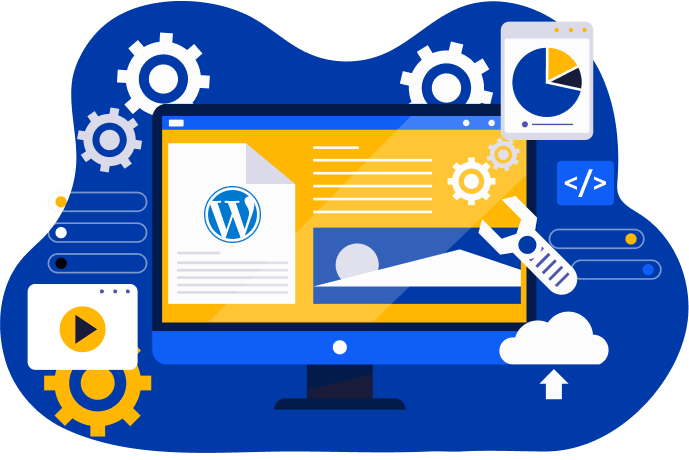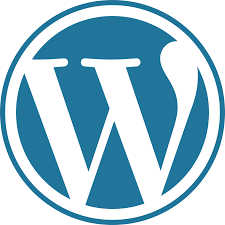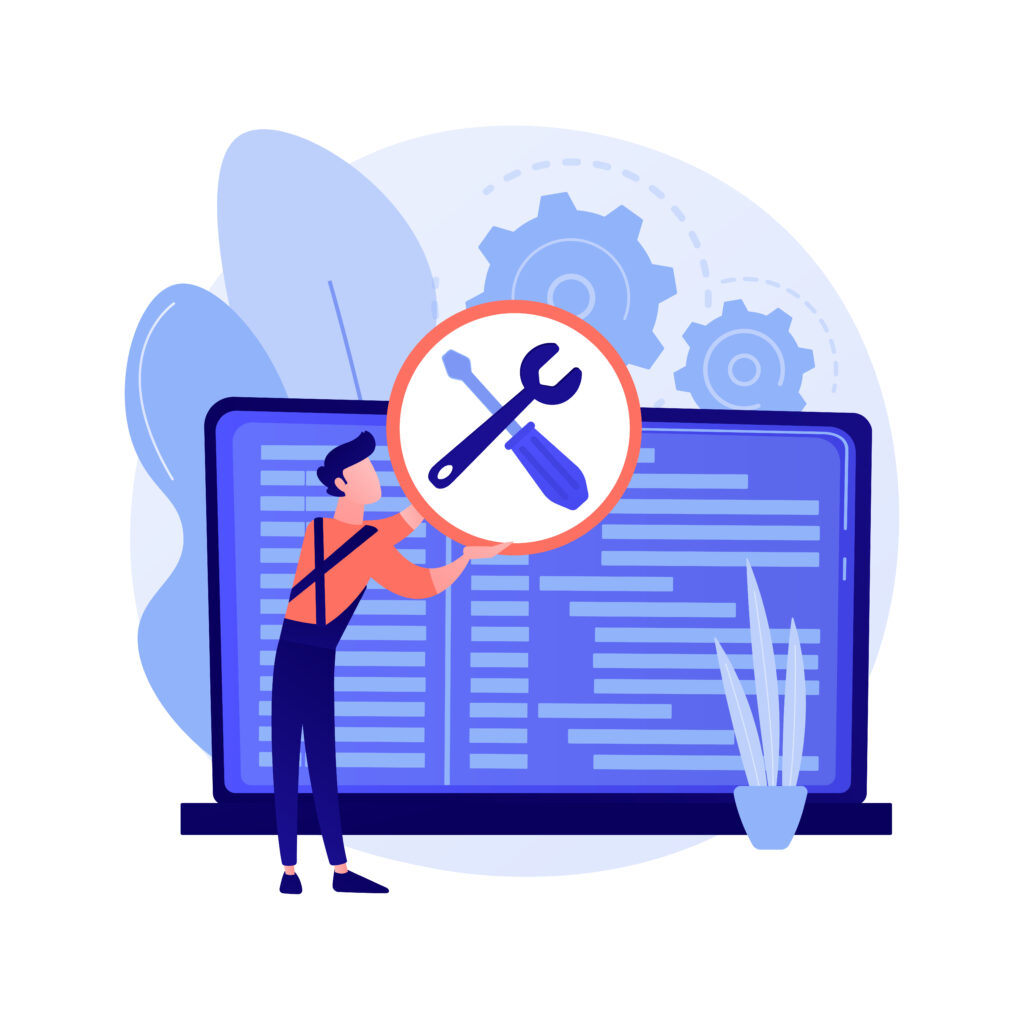Importance of Choosing the Best White Label WordPress Maintenance Plans
White label WordPress maintenance plans are services provided by specialized agencies that enable digital marketing companies, freelancers, and web design firms to deliver website maintenance under their own brand name.

These plans generally encompass a variety of technical support services, allowing agencies to concentrate on acquiring clients and developing projects without the hassle of managing the ongoing maintenance of client websites.
Key Features of White Label WordPress Maintenance Plans
White label WordPress maintenance plans come with an array of features that enhance the service capabilities of digital agencies, freelancers, and web developers. Below are some additional key features explained in detail.
1. Customizable Service Packages
Agencies have the ability to personalize maintenance plans to meet their clients’ unique requirements. This flexibility allows them to provide:
- Tiered Services: Different service levels (basic, standard, premium) can be developed based on client needs.
- Add-On Services: Agencies can incorporate additional offerings such as SEO optimization or content updates, creating a more comprehensive package. This customization enables agencies to address various client needs and budgets, ultimately enhancing client satisfaction and retention.
2. Uptime Monitoring
Ongoing monitoring of website uptime is essential for maintaining online presence and performance. Key features include:
- Real-Time Alerts: Agencies receive immediate notifications if a website experiences downtime, allowing for swift action to reduce outages.
- Performance Metrics: Regular uptime reports help agencies showcase reliability to clients, reinforcing trust.
3. Malware Removal and Cleanup
Website security is a critical aspect of maintenance. White label plans often feature:
- Proactive Scanning: Routine scans for malware and vulnerabilities help detect potential threats before they escalate.
- Cleanup Services: In the event of an attack, agencies can provide prompt cleanup services to restore the site, ensuring minimal disruption for clients.
4. Content Management Support
Many maintenance plans include assistance with managing website content, which can encompass:
- Regular Content Updates: Agencies can offer ongoing updates to keep website content fresh and relevant.
- SEO Optimization: Support for optimizing content for search engines can be included, helping clients enhance their online visibility.
5. Staging Environment Setup
A staging environment allows agencies to test changes prior to going live:
- Safe Testing Ground: Agencies can implement updates or new features in a staging area without impacting the live site.
- Client Approval Process: Changes can be presented to clients for approval before deployment, ensuring alignment with their expectations.
6. Detailed Analytics and Insights
Providing comprehensive analytics helps agencies illustrate the value of their maintenance services:
- Performance Reports: Regular reports that include website traffic statistics, user behavior insights, and performance metrics assist clients in understanding the impact of maintenance efforts.
- Actionable Insights: Recommendations based on analytics can guide clients in making informed decisions regarding their online strategy.
7. Dedicated Account Manager
Some white label services assign a dedicated account manager to each agency:
- Personalized Support: Having a single point of contact ensures consistent communication and tailored assistance.
- Strategic Guidance: Account managers can offer insights on best practices and trends in website management, aiding agencies in optimizing their service offerings.
8. Compliance and Accessibility Checks
Ensuring websites adhere to legal standards is increasingly vital:
- GDPR Compliance: Maintenance plans may include checks to ensure websites comply with data protection regulations.
- Accessibility Audits: Regular evaluations to ensure that websites are accessible to users with disabilities may be part of the service offering.
Benefits of White Label Maintenance Plans

White label WordPress maintenance plans offer numerous advantages for agencies aiming to improve their service offerings and streamline operations. The following points detail these benefits:
1. Cost Efficiency
Outsourcing maintenance services can result in substantial cost savings for agencies:
- Reduced Overhead: Agencies can avoid the expenses associated with hiring in-house developers or maintaining a dedicated support team, saving on salaries, benefits, and training costs. White label providers often operate at scale, allowing them to offer competitive pricing that individual agencies might not achieve independently.
- Predictable Expenses: Many white label services use fixed-fee models, which help agencies forecast their expenses more accurately. This predictability aids in budgeting and financial planning, leading to enhanced profitability.
2. Enhanced Security
Website security is critical, especially for WordPress sites that are often targeted by cyber threats:
- Proactive Measures: White label providers implement strong security protocols, including regular malware scans, updates, and firewall protections. This proactive strategy minimizes vulnerabilities and lowers the risk of breaches.
- Incident Response: In case of a security incident, white label services typically include rapid response protocols to swiftly address issues, ensuring minimal downtime and protecting client reputation.
3. Professional Branding Consistency
White label services enable agencies to maintain a cohesive brand image:
- Unified Communication: All maintenance activities are branded under the agency’s name, reinforcing brand identity and building client trust. Clients view these services as integral to the agency’s offerings rather than outsourced tasks.
- Client Loyalty: Consistent branding fosters loyalty as clients prefer receiving all services from a single provider, enhancing their overall experience and satisfaction.
4. Streamlined Client Experience
A seamless client experience is essential for retention:
- Single Point of Contact: Clients interact solely with the agency for all their website needs, simplifying communication and reducing confusion. This integration ensures clients feel supported across all aspects of website management.
- Comprehensive Service Offering: By bundling maintenance with other services like design and development, agencies can present a more complete package that enhances client satisfaction and loyalty.
5. Focus on Core Competencies
Outsourcing maintenance tasks allows agencies to concentrate on their strengths:
- Increased Productivity: With routine maintenance managed by experts, agency staff can focus on strategic initiatives such as client acquisition, project development, and creative work. This shift leads to improved productivity and better service delivery.
- Quality Improvement: By dedicating resources to core competencies, agencies can enhance the quality of their primary offerings while ensuring that maintenance is handled professionally by specialists.
6. Business Growth Opportunities
White label maintenance plans can create new growth avenues:
- Expanded Service Offerings: Agencies can quickly incorporate maintenance services into their portfolio without extensive training or hiring. This expansion allows them to attract new clients seeking comprehensive website solutions.
- Recurring Revenue Streams: By reselling maintenance plans at a markup, agencies can establish a steady income source that significantly contributes to their bottom line. This model promotes financial stability and growth potential.
7. Access to Expertise
Partnering with white label providers gives agencies access to specialized knowledge:
- Industry Best Practices: White label services are typically staffed by experts who stay updated on the latest trends and best practices in website maintenance and security. Agencies benefit from this expertise without needing to invest in continuous training for their staff.
- Quality Assurance: The high standards maintained by white label providers ensure that clients receive top-notch service consistently, enhancing the agency’s reputation in the market.
How White Label Maintenance Plans Work

White label maintenance plans offer a streamlined approach that enables agencies to provide website maintenance services under their own branding. Below is a detailed overview of how these plans function, covering aspects beyond just the sign-up process, client onboarding, and ongoing management.
1. Sign-Up Process
Agencies start by selecting a maintenance plan that aligns with their specific needs and those of their clients.
- Plan Selection: Agencies can choose from various plans tailored to different service levels, including basic updates, security monitoring, or comprehensive support that encompasses backups and performance optimization. Providers like WP Buffs offer tiered plans that can be customized based on the complexity and requirements of client websites.
- Easy Online Enrollment: The sign-up process is typically user-friendly, allowing agencies to complete it online. This convenience ensures that agencies can quickly begin offering maintenance services without extensive setup time.
2. Client On boarding

After signing up for a plan, the next step is onboarding the agency’s clients.
- Access Credentials: Agencies provide secure access credentials for each client website to the maintenance provider. This access is essential for the maintenance team to conduct an initial audit, assess the site’s current condition, and configure necessary settings.
- Initial Audit and Setup: The maintenance team performs a comprehensive audit of the client’s website to identify any existing issues, such as outdated plugins or security vulnerabilities. This initial setup ensures that all aspects of the site are optimized for performance and security from the beginning.
- Branding Customization: During onboarding, agencies can customize communication channels (like email addresses) to ensure all correspondence appears to come from their brand rather than the maintenance provider. This reinforces brand identity and maintains client trust.
3. Ongoing Management
Post-onboarding, the provider manages all aspects of website maintenance while keeping the agency informed.
- Regular Updates: The maintenance team conducts scheduled updates for WordPress core, themes, and plugins to ensure optimal performance and security. This proactive approach mitigates vulnerabilities associated with outdated software.
- Performance Monitoring: Continuous monitoring of website performance metrics such as uptime and load speed is carried out. Agencies receive regular reports detailing these metrics, which aids in effective communication with clients about their site’s health.
- Client Communication: Providers typically handle support requests directly but do so under the agency’s branding. This means clients interact with what they perceive as their agency’s support team, enhancing satisfaction and loyalty.
4. Reporting and Analytics
Regular reporting is a vital component of white label maintenance plans.
- Customized Reports: Agencies receive white-labeled reports summarizing maintenance activities, including updates performed, security checks completed, and performance metrics. These reports can be sent directly to clients or provided to agencies for further distribution.
- Actionable Insights: Reports often include recommendations for improvements based on analytics data. This information helps agencies guide clients on potential enhancements or adjustments needed to improve site performance or user experience.
5. Scalability Options
White label maintenance plans are designed to grow alongside an agency’s needs.
- Adding New Clients: Agencies can easily incorporate new client sites into their existing plans without significant administrative overhead. Most providers offer user-friendly dashboards for efficient management of multiple sites.
- Bulk Discounts: Many providers offer discounts for agencies managing multiple sites. For instance, WP Buffs provides a 20% discount when an agency oversees two or more websites under their white-label program. This pricing structure encourages agencies to expand their client base without proportionately increasing costs.
6. Support and Resources
White label providers often supply additional resources to assist agencies in succeeding.
- Training Materials: Many providers offer training resources in a partner hub that help agencies effectively sell and manage maintenance plans. These resources may include marketing materials, email templates for client outreach, and guides on best practices for website management.
- Dedicated Support Channels: Agencies typically have access to dedicated support from their white label provider, ensuring quick resolution of any issues without disrupting service delivery to clients. This support is particularly valuable during peak times or when unexpected challenges arise.
Key Limitations and Challenges

1. Communication Issues
Effective communication is vital when collaborating with a white label service provider. Agencies often encounter difficulties in ensuring that expectations are clearly communicated and understood by both their clients and the maintenance team. Miscommunication can result in delays, misunderstandings regarding project requirements, and ultimately affect client satisfaction.
2. Quality Assurance
Maintaining consistent quality across multiple client websites can be challenging. Agencies must ensure that the white label provider adheres to high service standards, which can vary significantly between providers. Establishing clear quality benchmarks and conducting regular reviews is essential but may require considerable resources.
3. Dependency on Third-Party Providers
Agencies that rely on white label services become dependent on these providers for critical maintenance tasks such as updates, backups, and security measures. If the provider encounters issues—such as downtime or inadequate service delivery, it can directly impact the agency’s reputation and client trust.
4. Scope of Services

There may be limitations in the scope of services offered by white label providers. Agencies need to have a clear understanding of what is included in their maintenance plans to avoid setting unrealistic expectations for clients. Services like emergency support or specific customizations may not always be covered, potentially leading to client dissatisfaction.
5. Pricing Structures
While white label services can lead to cost savings by eliminating the need for in-house staff, pricing structures can vary widely among providers. Agencies must carefully evaluate costs against the services offered to ensure they remain profitable while delivering value to their clients.
6. Security Risks
Outsourcing maintenance tasks introduces security risks, especially when sensitive client data is involved. Agencies must ensure that their white label partners implement robust security measures and adhere to best practices to mitigate vulnerabilities.
7. Client Relationship Management
Agencies often struggle to maintain direct relationships with clients when using white label services, as much of the communication may be handled by the third-party provider. This can dilute the agency’s brand identity and make it challenging to build strong client relationships, which are crucial for long-term success.
[Want to learn more about White Label WordPress Maintenance Plans? Click here to reach us.]
Conclusion
In conclusion, white label WordPress maintenance plans offer a strategic advantage for agencies looking to enhance their service offerings while optimizing operational efficiency. By partnering with specialized providers, agencies can deliver comprehensive maintenance services—such as updates, security checks, and performance optimization—under their own brand, ensuring a seamless experience for clients. This approach not only allows agencies to focus on core business activities but also fosters client trust and satisfaction through consistent, high-quality support.
Among the notable providers in this space is Bobcares, which offers 24/7 WordPress emergency support services. With a commitment to maintaining optimal site performance and security, Bobcares provides essential services such as constant site monitoring, backups, and expert troubleshooting. Their competitive pricing and robust support infrastructure make them an attractive option for agencies seeking reliable maintenance solutions.
Embracing white label WordPress maintenance services like those offered by Bobcares empowers agencies to not only streamline their operations but also position themselves as trusted partners in their clients’ success. Ultimately, these services are not just about maintaining websites; they are about enhancing the overall client experience and driving business growth in an increasingly competitive digital landscape.







0 Comments